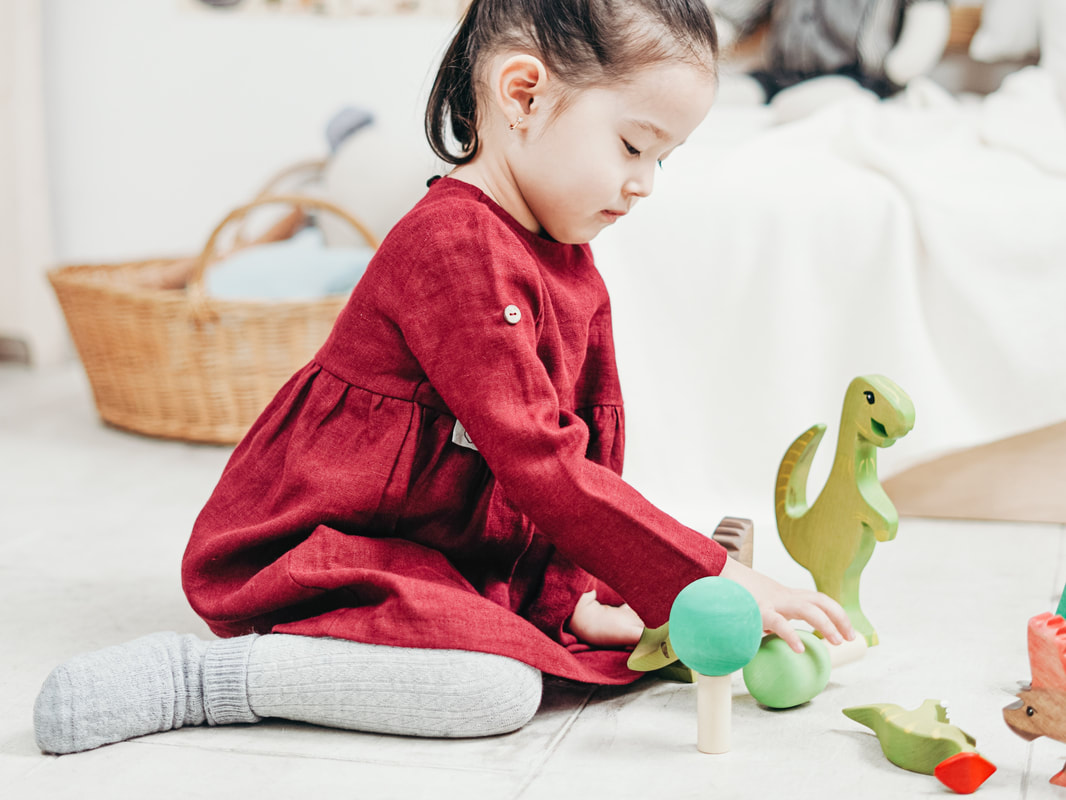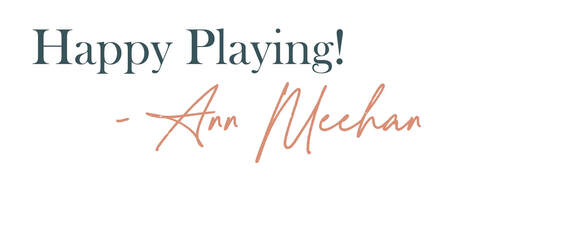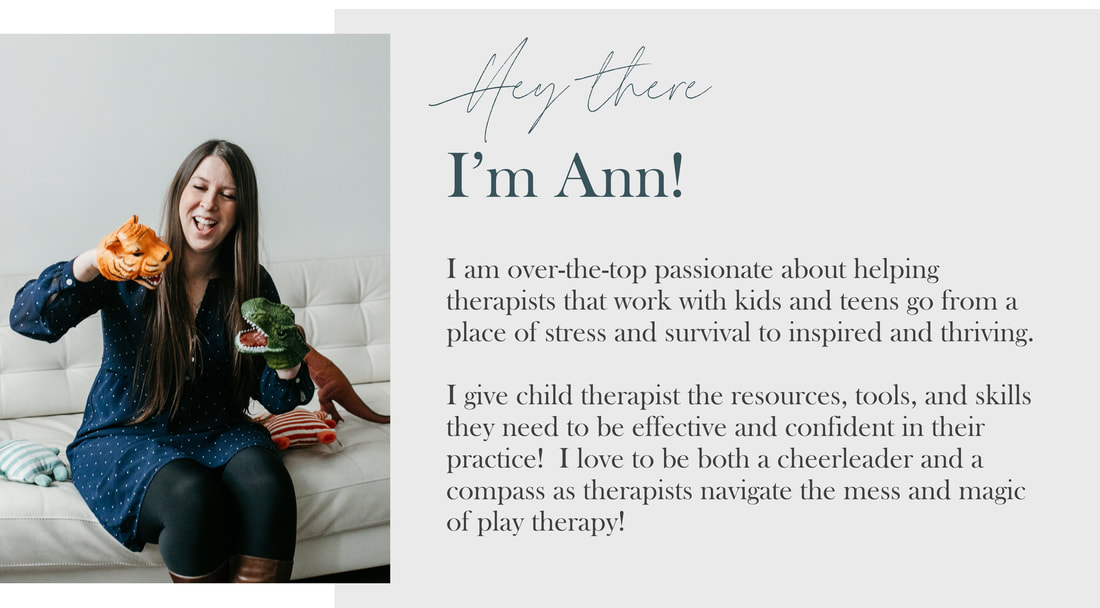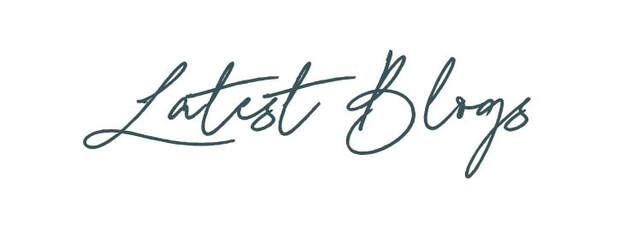|
You wave goodbye to your client, tidy up your office from all the creativity, mess, and magic that just happened, and you go to write your progress note.
But were you REALLY doing anything? Was what just happened play therapy… or were you just playing?
Imposter syndrome is something that can creep in quite easily for therapists in general, and for play therapists? Well… it’s next level. Especially if you have parents on a regular basis asking why you aren’t teaching skills, aren’t sitting their child down to talk about a certain topic, or the comments that their child “just plays and does whatever they want for the entire appointment”.
Is it really even helping? On the outside it does look like you are just playing with a child for 30-60 minutes like someone might play with their own child, niece, grandson, or family friend. Maybe you did some legos, messed around in the sand, or played restaurant - but what does that have to do with mental health? Well… if you're a Play Therapist, it has EVERYTHING to do with mental health! And because of this I wanted to share some of the key differences between “just playing” and Play Therapy. First, if you are doing Play Therapy you have specific training in the therapeutic powers of play and a specific modality or theory of change. This could be Child Centered Play Therapy, Adlerian Play Therapy, Synergetic Play Therapy, Theraplay….you get the point! When someone tells me they do Play Therapy it actually tells me very little about what they actually do with a client in session and their beliefs about how children change. So in short, the first checklist on the box of what makes up Play Therapy is a theory that is carried about by a trained Play Therapist. And to dig a little bit deeper into what it means to be "trained in play therapy", it means the combination of taking courses focused on play therapy, having supervision/consultation, trying interventions, techniques, and theories out with clients, and getting feedback in supervision/consultation. Wheew! Therapists who state they do play therapy but have no official training and supervision, well… aren’t. Without the training a therapist can’t anchor their specific theories and skills within a play therapy model or modality. Now, this certainly doesn’t mean you need to be a Registered Play Therapist™ to do play therapy, but at the very least you need to have taken a training or graduate class on Play Therapy and received some consultation/supervision about the process. And if we think about it, it makes sense! Most of our profession wouldn’t do the deep trauma work of EMDR without a basic EMDRIA training, it’s like that with Play Therapy too! Next, Play Therapy is set for a specific amount of time with a Play Therapist that is fully present - not trying to cook dinner, scroll through Facebook, or fold a load of laundry. “Just playing” can look like picking up an activity in one room, playing with a parent, grownup, or other child for a while, running to another area and activity, parents wandering off, the child playing alone, and then the TV getting turned on. In real life, play weaves itself in and out of days and with many different sets of people. Third, based on that theory, the therapist creates structure and activities (or not) according to the specific theory or theories they are trained in. This means everything down from how the client enters the play space, how the session is structured, and what toys are available (or not). What separates “just playing” from Play Therapy also looks like what the therapist says, why, and when! When I am doing Cognitive Behavioral Play Therapy sessions I focus more on thoughts and feelings, assessing for maladaptive cognitions and core beliefs, and focusing on helpful behavior. I ask questions, use reinforcement, and create activities. When I am doing Child Centered Play Therapy what I say, when, and why changes drastically! A Theraplay session may look like parents and children putting lotion on each other's hands, which looks wildly different from a Cognitive Behavioral Play Therapy session where the child is drawing out their Big Feeling Monster or regulating with Big Feeling Eaters. All of this structure and therapist direction would never be found in a Child Centered Play Therapy session where the child holds the role of the director! Toy selection is also important that children may not have in their home the play materials and objects available to have a full comprehensive play experience. The boy that is obsessed with Legos may not have dolls and the girls that just want to be princesses may not have villains and “bad guys”. AND times that children are “just playing” they aren’t held with the same structure, consistency, and support as in Play Therapy. They may have a grown-up who gets carried away and wants to make the play about them and their ideas, like insisting the bad guy really turns good at the end or they NEED another garage for their lego cars to go into. The play might be structured for output (creating a picture of a flower to put on the fridge) or as a distraction (why don’t you color while Mom cooks dinner!). And all of that complexity, my playful friend, is what makes Play Therapy… well… Play Therapy! Play therapists know what their role is, how they should show up in the session, and the specific activities they should engage in (or not) depending on their specific theory that is evidence based, or validated by research. It is also worth mentioning that I believe so much in the powers of play that I don’t believe that any play is without meaning. The play that a parent shares with a child, children share with each other, or between a grandmother and grandchild still has a wealth of worth and value for development, self esteem, and regulation! If you are looking for more support in your work with parents and caregivers in the playroom check out my course Holding Systems: Supporting Parents and Caregivers in The Playroom! Loading...
0 Comments
Leave a Reply. |
Hi, there!I'm Ann Meehan, an LPCC, Loading... Archives
July 2024
Categories
All
|
Privacy Policies | Terms of Use | Disclaimer
Contact
[email protected] | Copyright Meehan Mental Health Services 2022
Contact
[email protected] | Copyright Meehan Mental Health Services 2022







